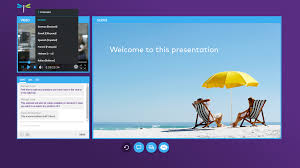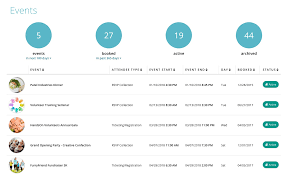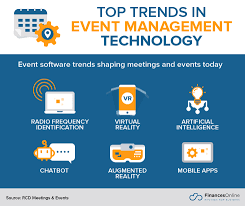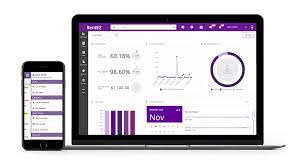Virtual Conference Platform Pricing: Making the Right Investment for Your Event
In recent times, virtual conferences have gained immense popularity as an effective alternative to traditional in-person events. With the convenience and flexibility they offer, more and more organizations are turning to virtual conference platforms to host their events. However, one crucial aspect that event organizers need to consider is pricing.
Virtual conference platform pricing can vary significantly depending on several factors such as features, customization options, attendee capacity, and additional services offered. Understanding these factors and evaluating them against your event requirements is essential in making the right investment decision.
Features and Functionality:
Different virtual conference platforms offer a wide range of features and functionalities. Basic packages may include features like live streaming, video conferencing, chat rooms, and session recordings. Higher-tier packages might provide advanced features such as breakout rooms, networking lounges, virtual booths, gamification elements, and analytics tools. Consider the features that align with your event objectives and choose a platform accordingly.
Customization Options:
Branding plays a significant role in creating a memorable event experience. Look for platforms that offer customization options like branding elements (logo placement, color schemes), customizable registration pages, personalized email communications, and tailored virtual environments. These options can enhance your event’s professional look while maintaining consistency with your organization’s brand identity.
Attendee Capacity:
The number of attendees you expect for your virtual conference will impact pricing considerations. Some platforms charge based on the maximum number of attendees allowed simultaneously or the total number of registered participants throughout the event duration. Determine your expected attendee count and choose a platform that can accommodate it within your budget.
Additional Services:
Certain virtual conference platforms provide additional services like technical support, dedicated account managers, onboarding assistance, training sessions for speakers or moderators, or even content creation support. While these services may come at an extra cost, they can be invaluable in ensuring smooth event operations and a seamless attendee experience. Assess your team’s capabilities and consider whether you require any additional support.
Pricing Models:
Virtual conference platforms typically offer pricing models such as pay-per-event, monthly subscriptions, or annual contracts. Consider the frequency and duration of your events to determine which pricing model aligns best with your needs. Additionally, be aware of any hidden costs, such as transaction fees or charges for exceeding attendee limits.
Trial Periods and Demos:
Before committing to a virtual conference platform, take advantage of trial periods or request demos. This allows you to explore the platform’s features firsthand, assess its user-friendliness, and evaluate its suitability for your event requirements. It also provides an opportunity to compare multiple platforms and make an informed decision based on your experience.
Remember that while pricing is a crucial factor in selecting a virtual conference platform, it should not be the sole determining factor. Consider the overall value provided by each platform, including customer support, user reviews and ratings, scalability options for future events, and integration capabilities with other tools or software.
By carefully evaluating virtual conference platform pricing alongside these considerations, you can make an informed investment decision that aligns with your event goals and budget. A well-chosen platform will not only enhance the attendee experience but also streamline event management processes for you and your team.
6 Essential Tips for Evaluating Virtual Conference Platform Pricing
- Compare different pricing plans and features before committing to a platform.
- Research any discounts or special offers available from the provider.
- Make sure the platform meets your needs in terms of features, scalability, and security before signing up for a plan.
- Consider whether you need additional add-ons such as recording, streaming, or transcription services when selecting a plan.
- Find out if there are any hidden costs associated with the service such as setup fees or monthly maintenance fees that may not be included in the advertised price.
- Ask about cancellation policies and refund options in case you decide to switch platforms after signing up for a plan
When it comes to virtual conference platform pricing, one of the most important tips to keep in mind is to compare different pricing plans and features before committing to a platform.
Every virtual conference platform offers a variety of pricing options and features, and it’s crucial to evaluate them carefully to ensure you choose the right fit for your event. By comparing different plans, you can find the best value for your budget while also ensuring that the platform meets all your requirements.
Start by identifying the key features that are essential for your event’s success. Are you looking for advanced networking capabilities, interactive sessions, or robust analytics tools? Make a list of must-have features and prioritize them based on their importance.
Next, explore the pricing plans offered by various virtual conference platforms. Look for transparency in pricing and check if they offer tiered plans that cater to different needs and budgets. Take note of any additional costs or limitations associated with each plan.
As you compare pricing plans, consider factors such as attendee capacity, customization options, customer support, and any extra services provided. Think about how these factors align with your event goals and audience expectations.
It’s also advisable to take advantage of free trials or demos offered by virtual conference platforms. This allows you to test drive the platform firsthand and get a feel for its user interface, functionality, and overall user experience. It can be immensely helpful in making an informed decision.
By comparing different pricing plans and features before committing to a platform, you can ensure that you select a virtual conference solution that not only fits within your budget but also delivers all the necessary tools and functionalities required for a successful event. Remember that investing time in research upfront can save you from potential headaches down the line and help make your virtual conference an unforgettable experience for attendees.
Research any discounts or special offers available from the provider.
When considering virtual conference platform pricing, it’s essential to explore all possible avenues for cost savings. One often overlooked aspect is researching discounts or special offers provided by the platform provider. These discounts can significantly impact your budget and allow you to maximize the value of your investment.
Many virtual conference platform providers offer promotional deals or discounts for specific events, non-profit organizations, educational institutions, or even early bird registrations. By taking the time to research and inquire about these opportunities, you may find yourself eligible for substantial savings.
Start by visiting the provider’s website and checking their pricing page or promotions section. Look out for any ongoing offers or upcoming promotions that align with your event timeline. If you don’t find any information readily available, don’t hesitate to reach out to their sales or customer support team directly.
Engaging in a conversation with the provider can help you uncover hidden discounts that may not be advertised publicly. They might have customized pricing options based on your specific event needs or be willing to negotiate a better deal based on factors like event size, duration, or frequency.
Additionally, keep an eye out for industry events or conferences related to virtual events technology. Providers often participate in these events and offer exclusive discounts to attendees. Attending such events can not only give you valuable insights but also provide an opportunity to connect with providers and explore potential cost-saving options.
It’s important to note that while discounts are enticing, they should not compromise the quality and reliability of the virtual conference platform. Ensure that the features and functionalities offered meet your requirements and align with your event goals before finalizing any agreement.
By researching discounts and special offers from virtual conference platform providers, you can potentially secure significant savings without compromising on quality. Remember to be proactive in exploring these opportunities and engaging in discussions with providers to find the best possible pricing arrangement for your event.
Choosing the right virtual conference platform is crucial for the success of your event. When considering pricing, it’s essential to ensure that the platform meets your needs in terms of features, scalability, and security before signing up for a plan.
Features:
Take the time to assess the features offered by the virtual conference platform. Consider what functionalities are essential for your event, such as live streaming, interactive sessions, networking opportunities, or exhibitor booths. Make sure that the platform provides all the necessary tools to create an engaging and interactive virtual experience for your attendees.
Scalability:
Consider the scalability options offered by the platform. If you anticipate an increase in attendee numbers or plan to host multiple events in the future, ensure that the platform can accommodate your growth without compromising performance. A flexible and scalable solution will save you from having to switch platforms as your event requirements evolve.
Security:
The security of your virtual conference should be a top priority. Look for platforms that offer robust security measures to protect sensitive information and prevent unauthorized access. Features like encryption, secure login processes, and data protection protocols are crucial to ensuring a safe environment for both organizers and attendees.
Before committing to a plan, take advantage of free trials or demos offered by virtual conference platforms. This allows you to explore their features firsthand and evaluate whether they meet your specific needs. It also gives you an opportunity to test their user interface and assess how easy it is to navigate and manage different aspects of your event.
Additionally, read reviews from other users or seek recommendations from industry peers who have used similar platforms. Their experiences can provide valuable insights into the reliability and performance of different platforms.
Remember that while pricing is important, it should not be the sole factor influencing your decision. Investing in a platform that aligns with your needs in terms of features, scalability, and security will ensure a seamless virtual conference experience for both you and your attendees.
Consider whether you need additional add-ons such as recording, streaming, or transcription services when selecting a plan.
When choosing a virtual conference platform for your event, it’s important to consider whether you need any additional add-ons such as recording, streaming, or transcription services. These add-ons can provide valuable benefits and enhance the overall experience for both organizers and attendees.
Recording services allow you to capture and save sessions, presentations, or panel discussions for future reference or on-demand viewing. This feature can be particularly useful if you plan to offer recorded content as part of a post-event package or if attendees may have scheduling conflicts during the live sessions. Recording services ensure that valuable content is not lost and can be accessed anytime, even after the event concludes.
Streaming services enable real-time broadcasting of sessions to remote attendees. If your event has a large number of participants who cannot physically attend, streaming services allow them to join virtually from anywhere in the world. This feature promotes inclusivity and expands your event’s reach by accommodating those who may face travel restrictions or other logistical challenges.
Transcription services convert spoken content into written text. This feature is beneficial for attendees who prefer reading over listening or for those with hearing impairments. Transcriptions also serve as valuable reference material that can be easily searched and shared. Additionally, transcriptions can be repurposed for creating blog posts, social media snippets, or other forms of content marketing.
When selecting a plan, carefully evaluate whether these additional add-ons align with your event objectives and attendee needs. Consider factors such as budget constraints, the complexity of your content, and the level of accessibility you want to provide.
Keep in mind that while some virtual conference platforms include these add-ons within their pricing plans, others may offer them as separate paid features. It’s essential to review the pricing structure and determine if these services fit within your budget.
By considering whether you need additional add-ons like recording, streaming, or transcription services when selecting a virtual conference platform plan, you can ensure that your event meets the diverse needs of your attendees. These features can enhance the overall experience, increase accessibility, and provide long-term value by preserving valuable content for future use.
Find out if there are any hidden costs associated with the service such as setup fees or monthly maintenance fees that may not be included in the advertised price.
Virtual Conference Platform Pricing: Beware of Hidden Costs
When exploring virtual conference platforms, it’s essential to consider more than just the advertised price. One crucial tip to keep in mind is to find out if there are any hidden costs associated with the service. These costs may not be explicitly mentioned in the initial pricing information but can significantly impact your budget.
One common hidden cost is setup fees. Some virtual conference platforms charge an additional fee for the initial setup and configuration of your event. This fee may cover tasks such as customizing the platform, integrating your branding elements, or setting up registration pages. It’s important to inquire about these setup fees upfront so that you have a clear understanding of the total investment required.
Another potential hidden cost to be aware of is monthly maintenance fees. While some platforms include ongoing support and maintenance in their base pricing, others may charge an additional fee for these services. Monthly maintenance fees can cover technical support, software updates, troubleshooting assistance, or access to customer service representatives. Understanding whether these fees are included or not will help you avoid any surprises down the line.
To ensure transparency and avoid unexpected expenses, it’s crucial to thoroughly review the pricing details provided by virtual conference platform providers. Take the time to ask specific questions about any potential hidden costs during your discussions with sales representatives or customer support teams.
Additionally, carefully read through the terms and conditions or service agreements before finalizing your decision. Look for any clauses related to additional charges that might not be immediately apparent from the advertised price.
By being proactive and diligent in uncovering hidden costs associated with virtual conference platforms, you can make a more informed decision that aligns with your budgetary constraints. Remember that while price is important, it should always be considered alongside other factors such as features, customization options, and overall value provided by the platform.
Finding a virtual conference platform that offers transparent pricing without unexpected surprises will contribute to a smoother planning process and ensure that your event remains within budget.
When considering virtual conference platform pricing, it’s important to not only focus on the features and costs but also consider the flexibility of cancellation policies and refund options. While you may carefully evaluate and select a platform that seems suitable for your needs, circumstances can change, and you might find yourself needing to switch platforms.
Before signing up for a plan, make sure to inquire about the cancellation policies and refund options offered by the platform provider. Understanding their terms and conditions will help you make an informed decision and mitigate any potential financial risks.
Some virtual conference platforms offer flexible cancellation policies that allow you to terminate your subscription at any time without penalties. Others may have specific timeframes or conditions under which cancellations are allowed. It’s crucial to understand these policies to avoid unexpected charges or complications if you decide to switch platforms.
Additionally, inquire about refund options in case you need to cancel your subscription. Some platforms may offer partial or full refunds depending on the timing of the cancellation or specific circumstances. Having this information upfront will help you assess the financial implications of switching platforms.
Keep in mind that cancellation policies and refund options can vary from one platform provider to another. Therefore, it’s essential to compare these aspects when evaluating different virtual conference platforms. By doing so, you can choose a platform that not only meets your event requirements but also provides flexibility in case your needs change down the line.
Asking about cancellation policies and refund options demonstrates proactive planning and ensures that you have a clear understanding of any potential financial commitments associated with switching platforms. This knowledge empowers you to make confident decisions while selecting a virtual conference platform that suits both your current needs and future contingencies.










